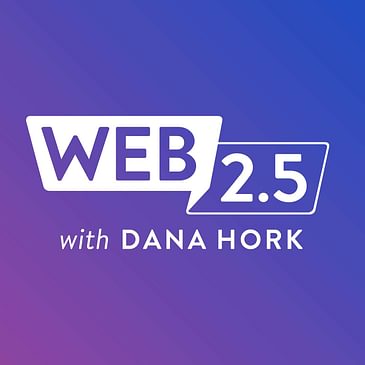How can the limits of community building in Web2 be overcome with Web3 technology?
This week, our guest on Web 2.5 is Robin Arzón, a former lawyer turned ultra-marathon runner and global fitness leader who currently serves as the VP of Fitness Programming and Head Instructor at Peloton. In addition to her roles at Peloton, Robin is a 27x marathon and ultra-marathon runner, a 2x New York Times bestselling author, and the Founder of Swagger Society, an NFT-enabled lifestyle membership club aimed at helping members set and achieve their life goals.
Swagger Society is a soon-to-be-launched community of go-getters who will be able to set self-directed goals, receive support from Robin and fellow community members, and be rewarded in Swagger Points that will offer access to Robin as well as additional perks.
Swagger Society members will also have token-gated lockers where members can earn rewards for engagement and completing their self-set goals. Through the ecosystem, members will be able to connect with others who share the same goals and interests and become each other’s accountability partners along the way. Swagger Society was Robin’s way of leveraging Web3 technology to go deeper with her community that she’s been cultivating for over a decade in Web2.
In addition to her work at Peloton and Swagger Society, Robin hosts a Masterclass on mental strength. Plus, she is a two-time New York Times bestselling author of Strong Mama and Shut Up and Run. Robin released her newest book, Strong Baby, this year, and she is also taking pre-orders on a new journal called Welcome, Hustler: An Empowerment Journal.
In this episode, Robin gives an inside look at her career transition from law to fitness, what she is building with Swagger Society, and her passion for creating a lifestyle membership club in Web3.
Show Notes:
0:00 Episode announcement
0:57 Show intro
1:58 Robin's intro and career prior to Web3
3:55 About Robin’s community
6:19 Shortcomings of Web2 tools
7:54 All about Swagger Society
11:27 Sponsored message from Hang
14:13 Types of goal-setting in Swagger Society
16:05 Peer-to-peer connectivity
17:38 Molly Dixon's artwork
18:52 Robin's OG interest in Web3
20:08 What it means to be a member in Swagger Society
21:20 Easiest and most challenging parts of building the space
22:08 Robin's inspirations
23:48 Shill
25:36 Wrap-up
25:50 Closing
Show Resources:
Robin on the Web: https://www.robinarzon.com/
Robin on Twitter: https://twitter.com/RobinNYC
Robin on Instagram: https://www.instagram.com/robinnyc/
Swagger Society on the Web: https://www.swaggersociety.io/
Swagger Society on Twitter: https://twitter.com/SwaggerSociety
Swagger Society on Instagram: https://www.instagram.com/swaggersociety/
Show Sponsor:
Hang.xyz: https://www.hang.xyz/
Show Website:
https://www.web2point5.io
Subscribe to Show Newsletter:
https://newsletter.web2point5.io/subscribe
Show Credits:
Dana Hork (Founder, Host, Producer)
Ron Passaro (Co-Producer/Editor)
Seton Rossini (Brand Design/Cover Art)
DISCLAIMER: This show is strictly educational. None of this is financial, tax, or investment advice — and not a solicitation to buy or sell any assets or to make any financial decisions. Please always do your own research. For important disclosures, see web2point5.io/disclosures.


